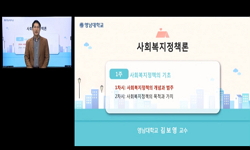This thesis analyses water and sanitation impacts on social development of Cambodian rural areas. The focus is put on the poor conditions of water supply and sanitation at different level. International and regional conditions of water supply and sani...
http://chineseinput.net/에서 pinyin(병음)방식으로 중국어를 변환할 수 있습니다.
변환된 중국어를 복사하여 사용하시면 됩니다.
- 中文 을 입력하시려면 zhongwen을 입력하시고 space를누르시면됩니다.
- 北京 을 입력하시려면 beijing을 입력하시고 space를 누르시면 됩니다.
Social development in Cambodian rural areas : clean water supply and appropriate sanitation challenges in the Tonle Sap lake area
한글로보기https://www.riss.kr/link?id=T13383433
- 저자
-
발행사항
Seoul : Graduate School International Studies, Korea University, 2014
-
학위논문사항
학위논문(석사) -- 고려대학교 국제대학원 , 국제학과 , 2014. 2
-
발행연도
2014
-
작성언어
영어
- 주제어
-
발행국(도시)
서울
-
형태사항
49장 : 삽화, 도표 ; 26 cm
-
일반주기명
지도교수: 이승호
참고문헌: 장 44-49 - DOI식별코드
- 소장기관
-
0
상세조회 -
0
다운로드
부가정보
다국어 초록 (Multilingual Abstract)
This thesis analyses water and sanitation impacts on social development of Cambodian rural areas. The focus is put on the poor conditions of water supply and sanitation at different level. International and regional conditions of water supply and sanitation are discussed. And, the national conditions are highlighted as a way to understand the impact on the Cambodian rural areas. Based on various data, this study presents quantified impacts and descriptive approach is used as an analytical tool in order to put light on various potential social impacts.
Theoretically, the Millennium Development Goals are adopted in that it gives rationale to provide water supply and sanitation services to people. Water supply and sanitation services are indispensable since they are some of the crucial elements helping people realize human dignity, equity and equality that the MDGs stress. Particularly, people living in Tonle Sap Lake region cannot have access to those services. So, providing water supply and sanitation services to the rural population can help realize the MDGs principles.
This thesis finds out significant social costs coming from poor conditions of water supply and sanitation services, which push Cambodian people into poverty. Financial and economic as well as immeasurable losses of absence of those services bring about social costs significantly. All of these costs of poor conditions of water supply and sanitation services hinder the social development in Cambodian rural areas.
Particularly, the conditions of water supply and sanitation in Tonle Sap Lake region is critical. Recently, however, the Tonle Sap Rural Water Supply and Sanitation Sector project by Asian Development Bank has brought meaningful outcomes. To begin with, the project has provided the local people with better water supply and sanitation services. In addition, local people’s participation and decision making has been implemented. Technical transfer has helped build institutional capacity. As a result, it has brought about aid effectiveness through local and institutional ownership as well as alignment with domestic plans.
Besides positive outcomes, this thesis implies challenges and opportunities. Consistent aid is needed for water supply and sanitation services to the local people because the poverty rate is quite high in that region. Without consistent help, those people cannot benefit from the advantages and live in poor living conditions persistently. Moreover, capacity building needs to be more focused since when a proper implementation capacity is formulated, the investment will be more effective. In this sense, clear strategy and effective implementation of the strategy are very much needed. Cooperation with different sectors and private sector involvement should be considered, which are meaningful in that they will facilitate plans for providing water supple and sanitation services. Eventually, these commitments help realize the MDGs principles and help rural population live in better living environment.
목차 (Table of Contents)
- Chapter 1. Introduction 1
- Chapter 2. Literature Review and Theoretical Framework 3
- 2.1 Literature Review 3
- 2.2 Research Methodology 5
- Chapter 1. Introduction 1
- Chapter 2. Literature Review and Theoretical Framework 3
- 2.1 Literature Review 3
- 2.2 Research Methodology 5
- 2.3 Millennium Development Goals 8
- Chapter 3. Clean Water Supply and Appropriate Sanitation in the Developing World 10
- 3.1 Overview of Water Supply and Sanitation in the Developing World and Southeast Asia 10
- 3.2 Overview of Water Supply and Sanitation in Cambodia 12
- 3.3 Social Impacts of Water supply and Sanitation in Cambodia 15
- Chapter 4. Case Study: The Tonle Sap Lake Area 20
- 4.1 Overview of the Tonle Sap Lake Area 21
- 4.2 Tonle Sap Rural Water Supply and Sanitation Sector project 23
- Chapter 5. Implications 27
- 5.1 Challenges 27
- 5.2 Opportunities 29
- Chapter 6. Conclusion 30
- Bibliography 33












